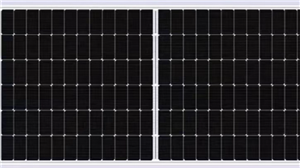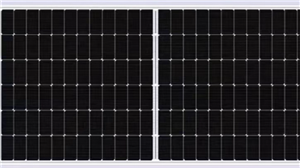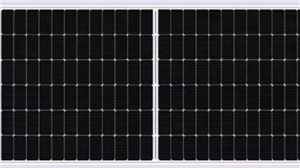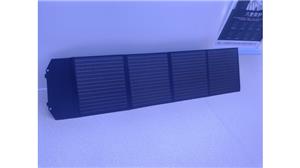production equipment
1. Core functions of the workshop
The mobile housing workshop undertakes the entire production process from raw material processing to finished housing delivery, with core functions including:
Customized processing of raw materials: Based on the design requirements of the house, the steel frame (such as section steel and square tubes) undergoes cutting and welding pre-treatment. Panels such as wallboards, floorboards, and roofs undergo cutting, insulation layer lamination, or fireproof coating treatment to ensure material compatibility and durability.
Modular component production: Mass-produce core components of houses, including load-bearing frames, wall modules (including insulation and soundproof layers), door and window integrated units, prefabricated modules for water and electricity pipelines, etc., to achieve component standardization and interchangeability.
Overall integrated assembly: On the assembly line, various modules are precisely combined to complete processes such as frame splicing, wall installation, roof erection, door and window embedding, water and electricity pipeline connection, interior decoration (such as floor laying and wall treatment), etc., forming a mobile house body with independent functions.
Performance testing and debugging: Conduct structural stability testing, waterproof sealing inspection, water and electricity system operation debugging, thermal insulation performance evaluation, etc. on finished houses to ensure compliance with safety and usage standards.
Mobile function adaptation: Install mobile devices according to the purpose of the house, such as chassis wheel sets, towing hooks, or lifting points, to ensure the convenience of transportation and on-site movement.
II. Main Production Equipment and Processes
The efficient operation of the workshop relies on specialized equipment and standardized processes. The core configurations include:
Processing equipment: CNC cutting machines, automatic welding robots, bending machines, stamping machines, etc., used for precise forming and welding reinforcement of steel frames; panel cutters, laminators, and composite panel production lines support the customized processing of wall and roof materials.
Assembly equipment: hydraulic lifts, positioning fixtures, electric tool sets, etc., which assist in precise docking and fixing of modules; sealant spraying machines, pipeline hot-melt docking equipment, etc., which ensure the assembly's sealing and functionality.
Testing equipment: pressure testing instruments, thermal imaging devices, leakage detectors, etc., used to verify the waterproofing, insulation, electrical safety, and other properties of buildings.
Production process: Adopting the "modular prefabrication + assembly line" model, the house is disassembled into components that can be mass-produced through standardized design. Each process is efficiently connected according to the flow, and the production cycle of a single small or medium-sized mobile house can be controlled within 3-7 days, significantly improving production efficiency.
III. Characteristics and Advantages of the Workshop
High industrialization: Freeing from the limitations of traditional on-site construction, centralized production in factories reduces human error, enhances product quality stability, and increases material utilization by over 30% compared to traditional construction methods.
Flexible customization capability: It can adjust the house size (such as single cabin, row combination), functional configuration (such as office, residence, medical) and performance parameters (thermal insulation, fire protection, seismic grade) according to customer needs, quickly responding to diverse scenario requirements.
Green and environmentally friendly production: The workshop centrally processes and disposes of processing waste, reducing dust and noise pollution during on-site construction; modular components can be reused, aligning with the concept of circular economy.
Efficient delivery guarantee: Standardized processes and assembly line operations support mass production, coupled with prefabricated design, enabling rapid fulfillment of delivery needs for urgent orders (such as emergency resettlement, event support).
IV. Typical application scenarios
The mobile houses produced in the workshop are widely used in multiple fields:
Engineering construction: serving as temporary offices, dormitories, and canteens on the construction site to meet the on-site needs of construction personnel.
Emergency support: used for temporary resettlement sites and medical aid stations after disasters such as earthquakes and floods.
Outdoor services: serving as supporting housing for scenic area guesthouses and camping sites, as well as office space in highway service areas.
Commercial operation: Transform into commercial spaces such as mobile shops, pop-up stores, and temporary exhibition halls.
Municipal facilities: serving as temporary police stations, rest rooms for environmental sanitation workers, community service points, etc.
V. Development significance
Mobile housing workshops have driven the transformation and upgrading of the construction industry through industrialized production models. Their characteristics of efficiency, flexibility, and environmental friendliness not only meet the rapid demand for temporary and lightweight buildings in modern society, but also align with the trend of green construction and sustainable development. They shift construction production from "on-site construction" to "factory manufacturing", providing core hardware support for fields such as emergency response, outdoor economy, and modular architecture. They represent one of the important directions for the industrialization of construction in the future.




